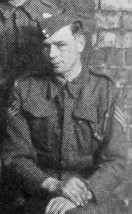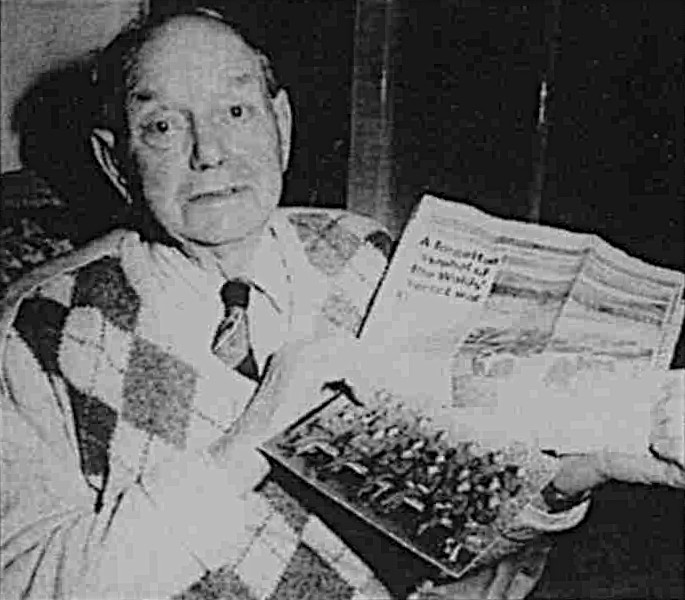Harry, as he was known, was a volunteer with the LDV and working on a farm, when he and his friend Bob Sisterton were approached by Captain Atkinson the Intelligence Officer. "He asked if we could be to secrecy" said Harry, before he recruited them both to Auxiliary Units.
"Our job was to harass the enemy if they invaded and we had gelignite and bombs available to blow up planes, tanks, roads and bridges."
The newly recruited six men of the Patrol were sent to Coleshill House for training. Harry said, "We were used to carrying large weights because we were brought up on farms. We were classed as stronger men. Believe me, it was tough." On their return, he was appointed Patrol Leader.
Harry recalled a tough experience on an exercise. "It was snowing and blowing and we'd had only one egg to eat in three days. An Army officer asked us for identity, but the only ID we had was the small yellow vests we wore and he didn't believe us. He knew we were starving and asked a corporal to get two glasses of rum. We still would not say and the officer told the corporal to drink both glasses, so we got nothing. Our own troops arrived and we were released."
He was apparently among those Auxiliers who were sent to the Isle of Wight around D Day to guard vulnerable points.
| Unit or location | Role | Posted from | until |
|---|---|---|---|
| Wharram le Street Patrol | Patrol Leader | Unknown | 03 Dec 1944 |
Tractor driver
It is known that Harry kept a wartime diary.
He did not speak about his wartime role for many years. The farmer he worked for had no idea and he did not even tell his wife Florence, who he had married shortly before the war broke out in 1939. He only spoke publicly about his experiences at the age of 84.
After the war he spent a period as a delivery driver for the Driffield Times, Beverley Guardian and Pocklington Times.
The National Archives in Kew WO199/3389
1939 Register
Beverley Guardian 6 Feb 1998

